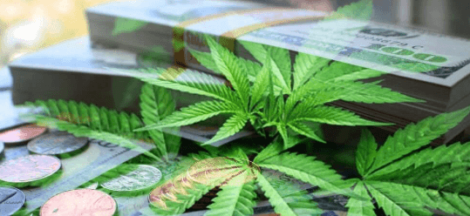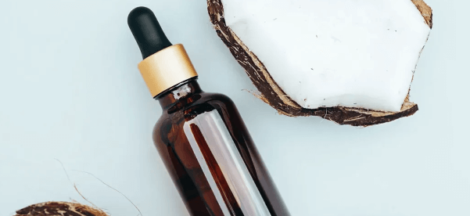CBD, short for cannabidiol, has gained significant attention in recent years for its potential health benefits. While CBD is derived from the cannabis plant, it does not produce the psychoactive effects typically associated with marijuana. This has led to a growing interest in its use as a natural remedy for various ailments.
However, the legal status of CBD varies across different states in the United States, including Tennessee. This article aims to provide an objective and informative overview of the legality of CBD in Tennessee and address any potential concerns or misconceptions surrounding its use.
In order to understand the legal landscape of CBD in Tennessee, it is important to first examine its legal status at the federal level. The 2018 Farm Bill legalized hemp-derived CBD products that contain less than 0.3% THC (the psychoactive compound found in cannabis) on a federal level. However, individual states have the authority to enact their own laws regarding CBD, leading to variations in legality across state lines.
In Tennessee specifically, there have been legislative developments aimed at allowing certain individuals access to CBD oil for medical purposes. It is crucial for residents of Tennessee who are considering using or purchasing CBD products to be aware of these laws and regulations to ensure they are staying within legal limits while enjoying the potential benefits that CBD may offer them.
Understanding CBD and its Potential Health Benefits
CBD, or cannabidiol, is a compound derived from the cannabis plant that has gained attention for its potential health benefits and is being studied for its therapeutic properties in various medical conditions.
CBD has been found to have several potential benefits, including anti-inflammatory properties, pain relief, and anxiety reduction.
Research suggests that CBD may be effective in treating conditions such as epilepsy, multiple sclerosis, and chronic pain.
Additionally, CBD has shown promise in alleviating symptoms related to mental health disorders such as anxiety and depression.
While more research is still needed to fully understand the extent of these benefits and how CBD works within the body, early studies are promising and have sparked interest in further exploration of this compound’s potential therapeutic applications.
The Legal Status of CBD in the United States
In the intricate fabric of American legislation, the status of cannabidiol remains a subject of considerable complexity and discussion.
CBD legalization is a topic that has gained significant attention in recent years due to its potential health benefits.
However, the legal status of CBD in the United States is determined by federal regulations, which can vary from state to state.
In 2018, the Farm Bill was passed, which legalized hemp-derived CBD as long as it contains less than 0.3% THC (the psychoactive component of cannabis). This allowed for the production and sale of CBD products across the country.
However, individual states still have the authority to impose stricter regulations on CBD. In Tennessee, for example, CBD derived from hemp is legal for both medical and recreational use as long as it contains less than 0.9% THC.
It’s important to note that although federal regulations have legalized hemp-derived CBD with low levels of THC, marijuana-derived CBD with higher levels of THC remains illegal under federal law.
Therefore, individuals should always check their state’s specific laws regarding CBD before purchasing or using any products containing this compound.
Overview of CBD Laws in Tennessee
Tennessee has implemented regulations regarding the use and distribution of cannabidiol (CBD) products. As of now, CBD is legal in Tennessee as long as it contains less than 0.3% THC, which is the psychoactive compound found in marijuana.
In 2014, the state passed Senate Bill 2495/House Bill 2445, also known as the ‘Tennessee Hemp Industries Act,’ which legalized the cultivation of industrial hemp for research purposes. This act laid the foundation for the development of Tennessee’s CBD market.
In 2018, with the passage of the federal Farm Bill, hemp-derived CBD was further legitimized at a national level. The Tennessee Department of Agriculture (TDA) oversees hemp farming and production in the state and requires all growers to obtain licenses and follow strict guidelines.
Additionally, retailers selling CBD products must ensure that their products are tested by third-party laboratories to verify their potency and safety standards.
Overall, while Tennessee has embraced some regulations to govern its CBD industry, it still allows for a growing market that caters to consumers looking for alternative remedies without experiencing any psychoactive effects associated with THC-containing cannabis products.
Senate Bill 2531: The Legalization of CBD Oil for Intractable Seizures
The passage of Senate Bill 2531 has had significant implications for individuals suffering from intractable seizures, as it legalizes the use of CBD oil as a potential treatment option.
This bill has opened up new possibilities for those who have been struggling to find relief from their seizures, offering them a promising alternative that was previously inaccessible.
The legalization of CBD oil for intractable seizures is based on research that suggests its potential effectiveness in reducing seizure activity.
While more studies are needed to fully understand the benefits and risks associated with CBD oil, this legislation provides an avenue for individuals to explore this treatment option under regulated conditions.
The regulations surrounding the use of CBD oil ensure that it is sourced from reputable manufacturers and contains low levels of THC, the psychoactive component found in marijuana.
By implementing these regulations, Tennessee aims to protect individuals seeking relief while also ensuring public safety.
Overall, Senate Bill 2531 represents a step forward in providing access to potentially beneficial treatments for those suffering from intractable seizures and highlights the importance of ongoing research into CBD oil’s therapeutic properties.
Qualifying Medical Conditions for CBD Use in Tennessee
One crucial factor in determining eligibility for CBD use in the state of Tennessee is the presence of a qualifying medical condition, much like how a key unlocks a door.
The use of CBD for chronic pain and anxiety disorders is gaining attention as a potential treatment option. Chronic pain affects millions of individuals, and CBD has shown promise in alleviating this debilitating condition. Studies have suggested that CBD can reduce inflammation and interact with neurotransmitters involved in pain perception, offering relief to those suffering from chronic pain.
Similarly, anxiety disorders are prevalent and can significantly impact one’s quality of life. Research indicates that CBD may have anxiolytic properties by influencing serotonin receptors in the brain, potentially reducing symptoms associated with various anxiety disorders.
As more research is conducted on the efficacy and safety of CBD for these conditions, it is essential to consider its potential benefits for eligible individuals seeking alternative treatment options.
Guidelines for Cultivation, Production, and Distribution of CBD Oil
Guidelines for the cultivation, production, and distribution of CBD oil in the state of Tennessee reflect a growing recognition of the need to regulate this emerging industry.
Cultivation regulations are put in place to ensure that CBD oil is produced safely and consistently. These guidelines outline the proper cultivation techniques, including the use of approved seeds and growing methods, as well as the necessary quality control measures to maintain product integrity.
Additionally, regulations for distribution focus on ensuring that CBD oil products are accurately labeled and meet certain standards of purity and potency. This includes requirements for testing and labeling, as well as restrictions on marketing claims that can be made about CBD oil products.
By implementing these guidelines, Tennessee aims to create a framework that promotes consumer safety while allowing for the growth and development of the CBD industry in the state.
Where to Buy CBD Products in Tennessee
A significant number of retail establishments in Tennessee offer a wide variety of CBD products, reflecting the growing demand for these items among consumers.
However, it is important to note that there are regulations and restrictions in place regarding the sale and distribution of CBD products in Tennessee.
The state requires that CBD products contain no more than 0.3% THC, which is the psychoactive compound found in marijuana. Additionally, CBD products must be derived from industrial hemp and not marijuana plants.
These regulations ensure that consumers have access to safe and legal CBD products.
When it comes to pricing and affordability, the cost of CBD products can vary depending on factors such as brand reputation, product quality, and concentration levels.
While some retailers may offer competitive prices, others may charge higher prices for premium or specialty products.
It is recommended that consumers research different retailers and compare prices before making a purchase to ensure they are getting the best value for their money.
Read also: Is Cbd Oil Legal In Nc
Understanding THC Content and Limits in CBD Products
Moving on from the previous subtopic of ‘Where to Buy CBD Products in Tennessee’, it is important to delve into the understanding of THC content and limits in CBD products.
As per Tennessee law, CBD products are only legal if they contain less than 0.3% THC, which is the psychoactive compound found in cannabis that produces a ‘high’ sensation. However, it is crucial for consumers to be aware of the THC content in the CBD products they purchase as not all manufacturers adhere to strict regulations and testing methods.
To ensure compliance with legal limits, reliable manufacturers often use reputable third-party laboratories for testing their products’ THC content. This ensures accurate measurement and transparency for consumers regarding the presence of THC within their chosen CBD product.
Moreover, individuals interested in consuming CBD should also consider following dosage guidelines recommended by healthcare professionals or consulting with them for personalized advice based on factors such as age, weight, and specific health conditions.
By understanding the importance of THC content and adhering to appropriate dosage guidelines, individuals can make informed choices about their consumption while staying within legal boundaries set forth by Tennessee legislation.
Labeling and Packaging Requirements for CBD Products in Tennessee
Labeling and packaging requirements for CBD products in Tennessee play a crucial role in ensuring consumer safety and transparency. The state has established specific regulations to govern the labeling of CBD products, which include clear and accurate information about the product’s content, dosage instructions, and potential side effects.
Additionally, packaging standards mandate that CBD products must be securely sealed to prevent tampering or contamination. These requirements are aimed at providing consumers with the necessary information to make informed decisions about their use of CBD products while also protecting them from potential harm.
By enforcing these labeling regulations and packaging standards, Tennessee seeks to promote consumer trust and confidence in the CBD industry, ultimately contributing to a safer marketplace for all stakeholders involved.
Consumer Safety and Quality Control Measures
Consumer safety and quality control measures are essential in ensuring the integrity and reliability of CBD products, as they provide necessary safeguards to protect consumers from potential risks or contaminants.
In Tennessee, consumer education plays a crucial role in promoting safe and informed use of CBD products. Manufacturers are required to provide clear and accurate labeling that includes information about the product’s contents, dosage instructions, and any potential side effects.
Additionally, product testing is a vital component of quality control measures. CBD products must undergo rigorous testing to ensure they meet the state’s standards for safety and potency. This testing includes checking for the presence of harmful substances such as pesticides, heavy metals, and microbial contaminants.
By implementing these consumer safety measures and enforcing strict quality control standards, Tennessee aims to provide its residents with access to high-quality CBD products that can be used safely for their intended purposes.
Potential Benefits and Risks of Using CBD in Tennessee
Research has indicated that the use of CBD products may offer potential therapeutic benefits, such as relieving pain and reducing anxiety, but it is important to carefully consider the associated risks as well.
When considering using CBD in Tennessee, it is crucial to be aware of proper dosage recommendations and potential drug interactions.
CBD dosage recommendations can vary depending on factors such as body weight, individual tolerance, and the specific condition being treated.
It is advisable to start with a low dose and gradually increase if necessary while monitoring any effects.
Additionally, it is important to be cautious when taking medications alongside CBD, as there is a possibility of drug interactions.
CBD can potentially affect how certain drugs are metabolized by the body, which may lead to adverse effects or reduced efficacy of these medications.
Therefore, individuals should consult with their healthcare provider before incorporating CBD into their routine to ensure safety and avoid any potential complications.
Emerging Research and Future of CBD in Tennessee
The evolving landscape of CBD in Tennessee holds promise for further advancements and breakthroughs in the field, as researchers continue to explore its potential applications and effects.
The future research on CBD aims to delve deeper into understanding its therapeutic applications.
Studies have already suggested that CBD may have potential benefits in managing various conditions such as chronic pain, anxiety, epilepsy, and even certain forms of cancer.
However, more rigorous research is needed to validate these claims and establish specific dosage guidelines for different conditions.
Additionally, future studies will likely focus on exploring the long-term effects of CBD use and identifying any potential risks or side effects associated with its prolonged use.
As the demand for alternative treatments continues to grow, it is expected that there will be an increase in funding and support for research on CBD in Tennessee, leading to a better understanding of its therapeutic potential and wider acceptance within the medical community.
Legal Challenges and Debates Surrounding CBD in Tennessee
Legal challenges and debates surrounding CBD in Tennessee have sparked discussions about the appropriate regulation and oversight of its production, distribution, and use. The challenges in legalizing CBD stem from conflicting federal and state laws regarding its legality.
While the 2018 Farm Bill legalized industrial hemp at the federal level, some states still maintain strict regulations on CBD derived from hemp. In Tennessee, for example, there is a grey area when it comes to CBD products containing even trace amounts of THC, as state law does not distinguish between hemp-derived CBD and marijuana-derived CBD. This has caused confusion among consumers and businesses alike.
Additionally, public opinion on CBD legalization varies widely, with some advocating for its therapeutic benefits and others expressing concerns about potential misuse or lack of regulation. As lawmakers continue to navigate these legal challenges and debates surrounding CBD in Tennessee, finding a balance between ensuring public safety while allowing access to this potentially beneficial compound remains a complex task.
Tips for Buying and Using CBD Products Legally in Tennessee
When purchasing and utilizing CBD products in Tennessee, individuals should carefully review the labels, seek third-party lab testing results to ensure product quality and safety, and consult with healthcare professionals to determine appropriate dosage and usage guidelines.
It is important for consumers to be aware of the ingredients listed on the label and to check if any allergens or potential contaminants are present.
Additionally, seeking third-party lab testing results can provide reassurance that the product meets quality standards and contains the advertised amount of CBD.
Consulting with healthcare professionals is crucial as they can provide guidance on dosage recommendations based on individual needs and health conditions. This ensures that consumers are using CBD products safely and effectively.
Furthermore, when buying CBD online in Tennessee, it is essential to choose reputable retailers that have transparent information about their products’ sourcing, manufacturing processes, and compliance with legal regulations.
By following these tips, individuals can make informed decisions when purchasing and using CBD products while ensuring their safety and efficacy.
Frequently Asked Questions
Are there any legal challenges or debates surrounding the use of CBD in Tennessee?
Legal challenges exist surrounding the use of CBD in Tennessee. These challenges primarily revolve around the lack of clear regulations and confusion regarding its legality. However, there is growing recognition of CBD’s medical benefits, which may influence future debates on its use.
What are the guidelines for cultivation, production, and distribution of CBD oil in Tennessee?
Cultivation guidelines and distribution regulations for CBD oil in Tennessee are governed by the state’s Department of Agriculture. The guidelines ensure compliance with federal laws and cover aspects such as licensing, testing, labeling, and record-keeping.
Where can I buy CBD products in Tennessee?
Popular CBD brands in Tennessee can be found at various retail locations and online platforms. It is important to follow the CBD dosage guidelines provided by manufacturers and consult a healthcare professional for personalized advice.
What are the labeling and packaging requirements for CBD products in Tennessee?
Labeling requirements for CBD products in Tennessee mandate that the labels must include the product’s name, ingredients, net weight or volume, and a batch or lot number. Packaging requirements specify that packaging must be tamper-evident and child-resistant to ensure product safety.
What are the potential benefits and risks of using CBD in Tennessee?
The potential benefits of using CBD in Tennessee include pain relief, reduction of anxiety and depression, and alleviation of symptoms related to epilepsy. However, potential risks may include liver damage, drug interactions, and limited regulation of product quality.
Conclusion
In conclusion, the legal status of CBD in Tennessee is complex and evolving. While the state has made some progress in allowing access to CBD oil for individuals with certain medical conditions, there are still limitations and restrictions in place.
It is important for residents of Tennessee to understand the specific laws and regulations surrounding CBD use in order to ensure compliance.
Despite the legal challenges and debates surrounding CBD, many people in Tennessee are finding relief from a variety of health issues through its use. The potential benefits of CBD include pain management, reduction of seizures, anxiety relief, and more. However, it is also crucial to consider the risks and potential side effects associated with its use.
As research on CBD continues to emerge, it is likely that we will see further advancements in its legal status and understanding of its health benefits. In the meantime, individuals interested in using CBD products should thoroughly research their options and consult with healthcare professionals to ensure they are purchasing high-quality products that comply with Tennessee’s laws.
In conclusion, while navigating the world of CBD can be challenging, staying informed about current legislation and researching reputable sources can help consumers make educated decisions about their health needs.
As Tennessee continues to explore the potential benefits of CBD oil for various medical conditions, it is important for individuals to remain vigilant about following state regulations to ensure legal compliance. By doing so, they can safely access these potentially helpful products while contributing to ongoing discussions on this emerging field.





 LATEST NEWS – STUDY ON NEW MOTHERS & SMOKING CESSATION RECRUITING
LATEST NEWS – STUDY ON NEW MOTHERS & SMOKING CESSATION RECRUITING